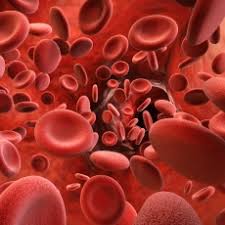Treatment
Several different types of clotting factors are associated with different varieties of hemophilia. The main treatment for severe hemophilia involves receiving replacement of the specific clotting factor that you need, through a tube placed in a vein.
This replacement therapy can be given to combat a bleeding episode that’s in progress. It can also be administered on a regular schedule at home to help prevent bleeding episodes. Some people receive continuous replacement therapy.
Replacement clotting factor can be made from donated blood. Similar products, called recombinant clotting factors, aren’t made from human blood.
Other therapies may include:
- Desmopressin (DDAVP). In mild hemophilia, this hormone can stimulate your body to release more clotting factor. It can be injected slowly into a vein or provided as a nasal spray.
- Clot-preserving medications (anti-fibrinolytics. These medications help prevent clots from breaking down.
- Fibrin sealants. These medications can be applied directly to wound sites to promote clotting and healing. Fibrin sealants are especially useful in dental therapy.
- Physical therapy. It can ease signs and symptoms if internal bleeding has damaged your joints. If internal bleeding has caused severe damage, you may need surgery.
- First aid for minor cuts. Using pressure and a bandage will generally take care of the bleeding. For small areas of bleeding beneath the skin, use an ice pack. Ice pops can be used to slow down minor bleeding in the mouth.
- Vaccinations. Although blood products are screened, it’s still possible for people who rely on them to contract diseases. If you have hemophilia, consider receiving immunization against hepatitis A and B.
Lifestyle and home remedies
To avoid excessive bleeding and protect your joints:
- Exercise regularly. Activities such as swimming, bicycle riding and walking can build up muscles while protecting joints. Contact sports — such as football, hockey or wrestling — are not safe for people with hemophilia.
- Avoid certain pain medications. Drugs that can aggravate bleeding include aspirin and ibuprofen (Advil, Motrin IB, others). Instead, use acetaminophen (Tylenol, others), which is a safe alternative for mild pain relief.
- Avoid blood-thinning medications.Medications that prevent blood from clotting include heparin, warfarin (Coumadin, Jantoven), clopidogrel (Plavix) and prasugrel (Effient).
- Practice good dental hygiene. The goal is to prevent tooth extraction, which can lead to excessive bleeding.
- Protect your child from injuries that could cause bleeding. Kneepads, elbow pads, helmets and safety belts all may help prevent injuries from falls and other accidents. Keep your home free of furniture with sharp corners.






